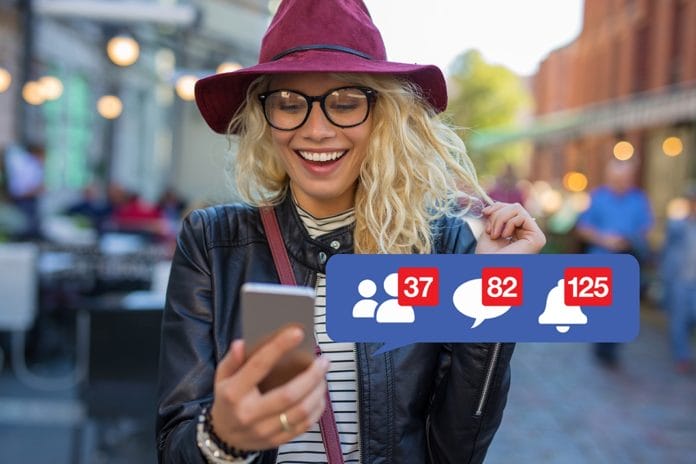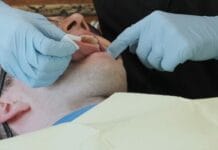It is no surprise to anyone in the modern world that in 2020 we live in a very high tech, social network type of world. We can be connected to gaming sites, Facebook, Twitter, LinkedIn, Instagram, Snapchat, and so many more with just the tap of a finger or a single voice command.
While I strongly believe that there are plenty of positive effects of social media, there is, unfortunately, the potential for negative effects as well. As health-care providers, we may be faced with the dilemma of whether to accept a friend request or if we should friend a patient. I was recently asked this question by a colleague. Although I know my own personal feelings on this topic, it made me wonder what the consensus of most practitioners is when faced with this decision.
Patients Who Are into You
Social media is a wonderful tool to help your dental practice stay relevant in today’s market. Facebook estimated that 2.26 billion people use Facebook, WhatsApp, Instagram, or Messenger each day, and more than 2.89 billion people use at least one of the Facebook family of services every month. On average, 1.66 billion people log onto Facebook daily and are considered daily active users (Facebook DAU) for December 2019.1
Social media can help you to connect with your current and future patients. Offices can post tips, videos, online reviews, oral health articles, before and after photos, raffles, highlight doctors or staff members, patients, and specials that your office may offer. It’s a fun and easy way to talk and connect with people who are interested in you, your staff and your practice in a way that you are comfortable with.
You will need to set up a Business page, not a personal profile page. You control all the content on the page and structure it with professional boundaries in effect. In a sense, it becomes a fan page for your patients who love you! Rather than “friending” you, patients “like” your page and receive notification updates and can follow your posts.
Although some offices will outsource this to a marketing company, it can easily be done within the office setting. Just remember to keep it relevant, up to date, and professional.
Are You My Friend?
So, what’s wrong with friending our patients on social media sites? Interestingly, while 74% of dentists and 44% of patients state that it is not appropriate for dentists and their patients to be friends on social media platforms, 29% of dentists and 17% of patients have accepted friend requests and have added their dentist on social media.2
Some of you may be in small towns and will run into patients at the grocery store, your children’s ballgames, or the post office. Some of you may have been in the same dental practice for more than five or 10 years and have built relationships and friendships with some of your long-term patients. It’s a very personal decision, but one that you should put a lot of thought into before you click that accept button.
I posted an online poll in a group of dental professionals posing this very question and here are the results:
Out of 462 dental professionals polled:
- 251 (54%) would friend a patient, but they are very selective.
- 142 (31%) would friend a patient, but only if they were friends prior to being a patient.
- 67 (15%) said “nope, never, not a chance.”
- Two said “Absolutely, patients are friends.”
Selective Friends
The overwhelming response was that dental professionals (RDHs or DAs) would friend a patient on Facebook, but they are very selective in doing so. I also fall into this category. Although I am a very private person, I do have some patients who I have a genuine connection or common interest with and share personal stories and information with; so for those few patients, I have no problem being their Facebook friend.
But, for most of my other patients, I feel that would be very inappropriate. Why you may ask? A huge host of reasons that I can think of, and here are just a few. Although you may choose to divulge with patients some information face to face, you may hold back or temper what you allow them to know about you.
Facebook can show who you are related to directly or indirectly, which may not be information you want to share. Any political affiliations and views you may have commented about or posted are visible, any personal issues or beliefs, online spats, those vacation photos of you in a swimsuit, partying at New Years, that new ride you just purchased, or a random dental joke you found funny that patients could find offensive.
Access to social media sites by your patients can blur the boundaries between the professional and private life that you lead and can change the whole balance of your relationship with your patients. You want them to value you as a dental professional and have trust in you to care for their dental health. I recommend being very selective in patients that you accept friend requests from or direct them to your business Facebook page where you can interact with them if needed on a professional platform. Patients can be great friends, but not always Facebook friends.
Before you leave, check out the Today’s RDH self-study CE courses. All courses are peer-reviewed and non-sponsored to focus solely on high-quality education. Click here now.
Listen to the Today’s RDH Dental Hygiene Podcast Below:
References
- The Top 20 Valuable Facebook Statistics – Updated January 2020. Zephoria Digital Marketing. January 2020. Retrieved from https://zephoria.com/top-15-valuable-facebook-statistics/.
- Parmar, N., Dong, L. Benedikt Eisingerich, A. Connect with Your Dentist on Facebook: Patients’ and Dentists’ Attitudes Towards Social Media Usage in Dentistry. J Med Internet Res. 2018; 20(6): e10109. Retrieved from https://www.ncbi.nlm.nih.gov/pmc/articles/PMC6045786/












